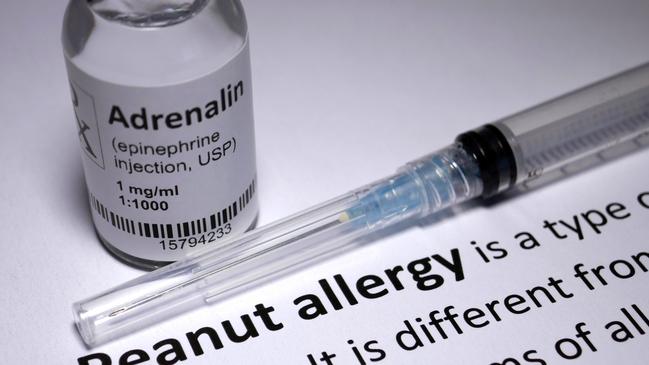Can peanuts be the cure for peanut allergy?
A nut allergy can be life-threatening, but a new trial has found eating a small daily dose of peanuts can help overcome it.

A daily dose of peanuts can help adults overcome life-threatening nut allergies, a landmark trial has found.
People who had previously associated peanuts with “fear and death” are now eating them with breakfast after undergoing the treatment programme to desensitise them, at Guy’s and St Thomas’ NHS Foundation Trust.
It is the first time the approach, known as oral immunotherapy, has been trialled entirely in adults, having previously been successful in helping children with allergies. The study involved 21 adults aged between 18 and 40 who were given gradually increasing doses of the nut under supervision over several weeks, starting with less than 1/100th of a full peanut.
By the end of the trial, two thirds could consume the equivalent of five peanuts without having an allergic reaction. These participants now eat peanut butter or peanuts at home every day to remain desensitised and are “no longer living in fear”.
Stephen Till, professor of allergy at Guy’s and St Thomas’ Hospitals and King’s College London, who led the trial, said: “Constant fear of life-threatening reactions places a huge burden on people with peanut allergy. The only way to manage a peanut allergy is strict avoidance and treatment of allergic reactions, including with adrenaline.

“Although peanut immunotherapy is known to be effective in children, this trial provides preliminary evidence that adults can also be desensitised and that this improves quality of life. The average tolerated dose of peanuts increased a hundredfold over the course of the trial.”
The patients had their allergy confirmed and were given the first dose in hospital of 0.8mg of peanut flour mixed with food, then 1.5mg 30 minutes later, followed by 3mg 30 minutes after that – the equivalent of 1/100th of a peanut.
Participants who tolerated 1.5mg or 3mg of peanut flour continued on a daily dose at home for two weeks. Their dosage increased gradually, and once they could tolerate 50-100mg of peanut protein they were switched to eating whole peanuts, peanut butter or peanut products – the first dose under supervision of the clinical team.
By the end of the study, which was funded by the National Institute for Health and Care Research, two thirds were able to eat the equivalent of five peanuts without reacting.

Hannah Hunter, a lead author specialist who is an allergy dietitian at Guy’s and St Thomas’ trust, said: “Living with peanut allergy is a huge burden due to the need for constant vigilance and the risk of accidental exposures. Everyday situations such as eating in restaurants and social events are anxiety-provoking and our patients tell us that the condition also affects travel choices and career options.
“We found that quality of life significantly improved after oral immunotherapy, and fear of food also decreased. Many participants who completed the trial told us that the treatment had been life-changing and they were no longer living in fear.”
Ashley Dalton, minister for public health, said: “This groundbreaking research offers hope to thousands living with peanut allergies. For too long, people have navigated daily life in fear of accidental exposure that could be life-threatening.”
Adam Fox, chairman of the National Allergy Strategy Group, said: “Conventional wisdom has been that oral immunotherapy for food is really just for children and there is clear evidence that the younger it is started, the safer and better the outcome. However, that doesn’t mean that the benefits would not still be worthwhile for adults, and this study shows that for many, oral immunotherapy – for peanut, at least – can still make a real difference.”
The study was published in the journal Allergy. Last year research at NHS hospitals found children with severe peanut and milk allergies could be treated using low daily doses of the allergens.
The Times



